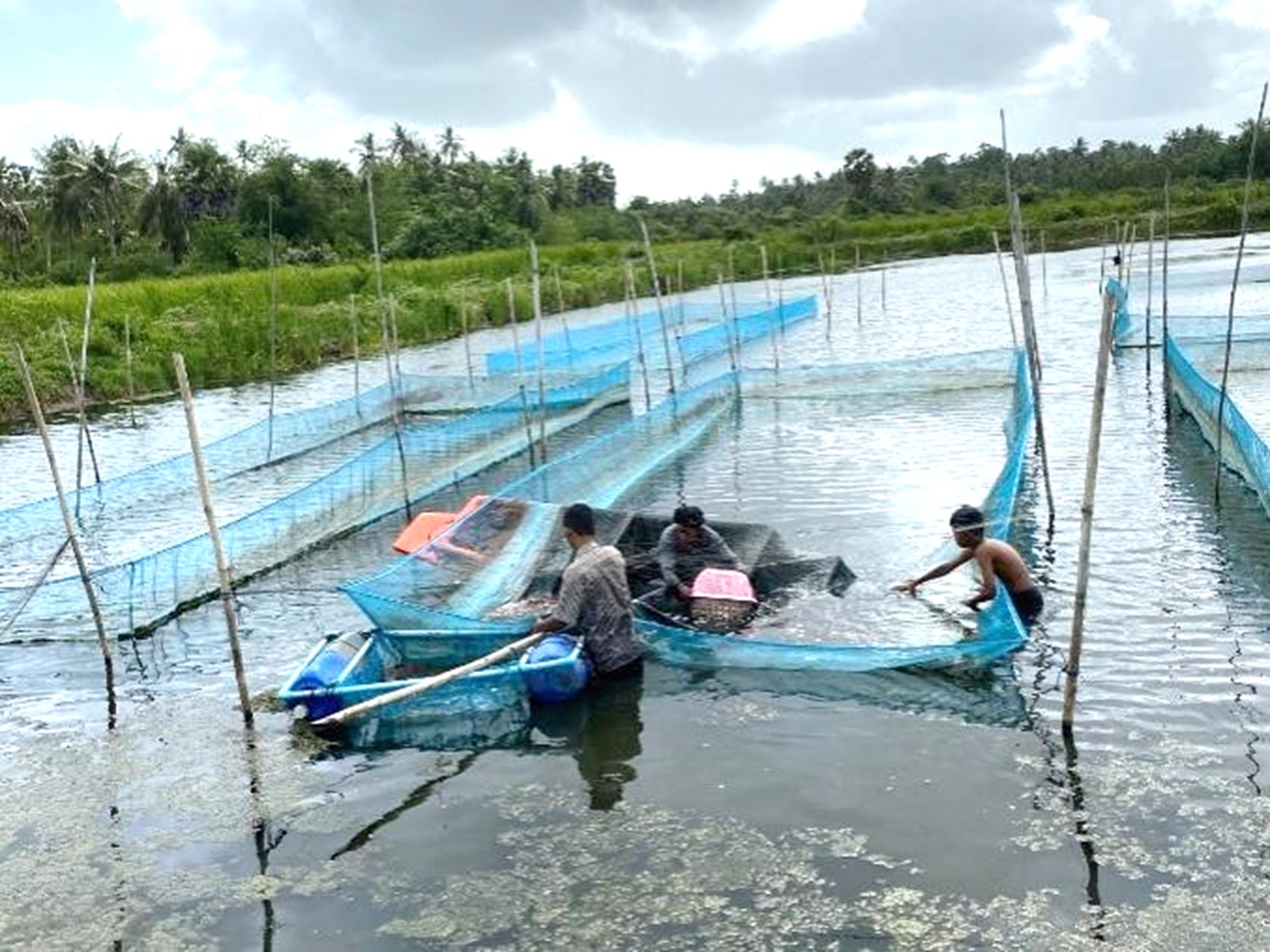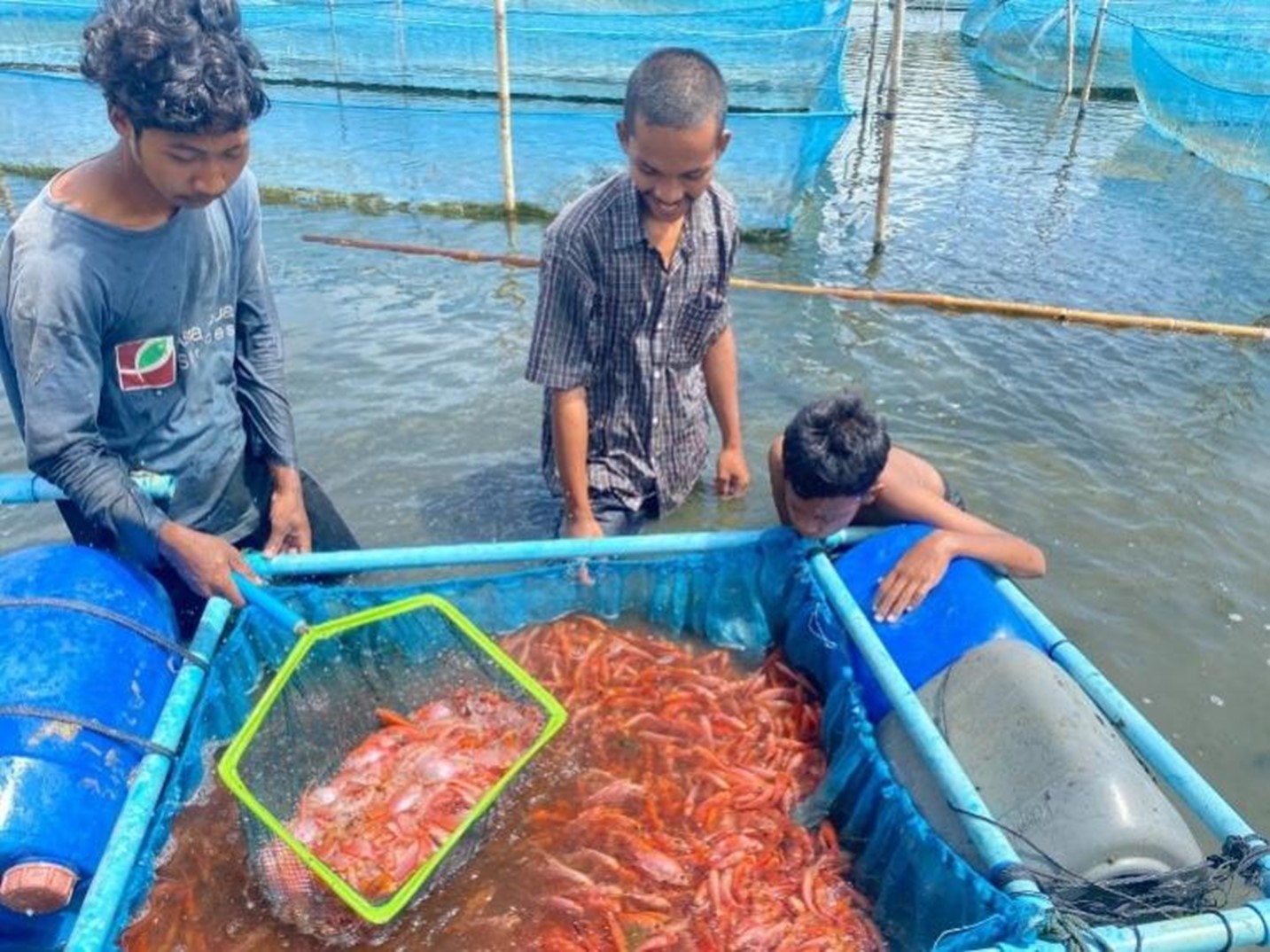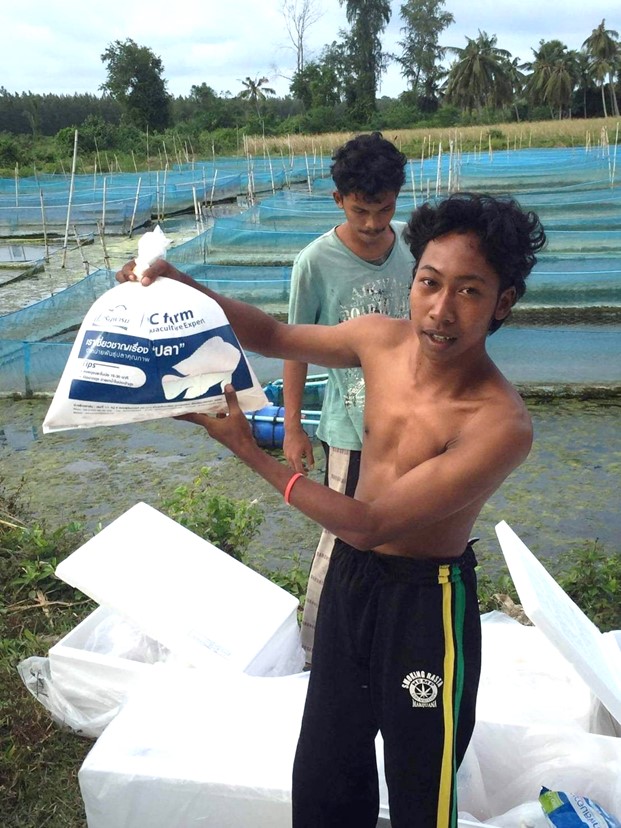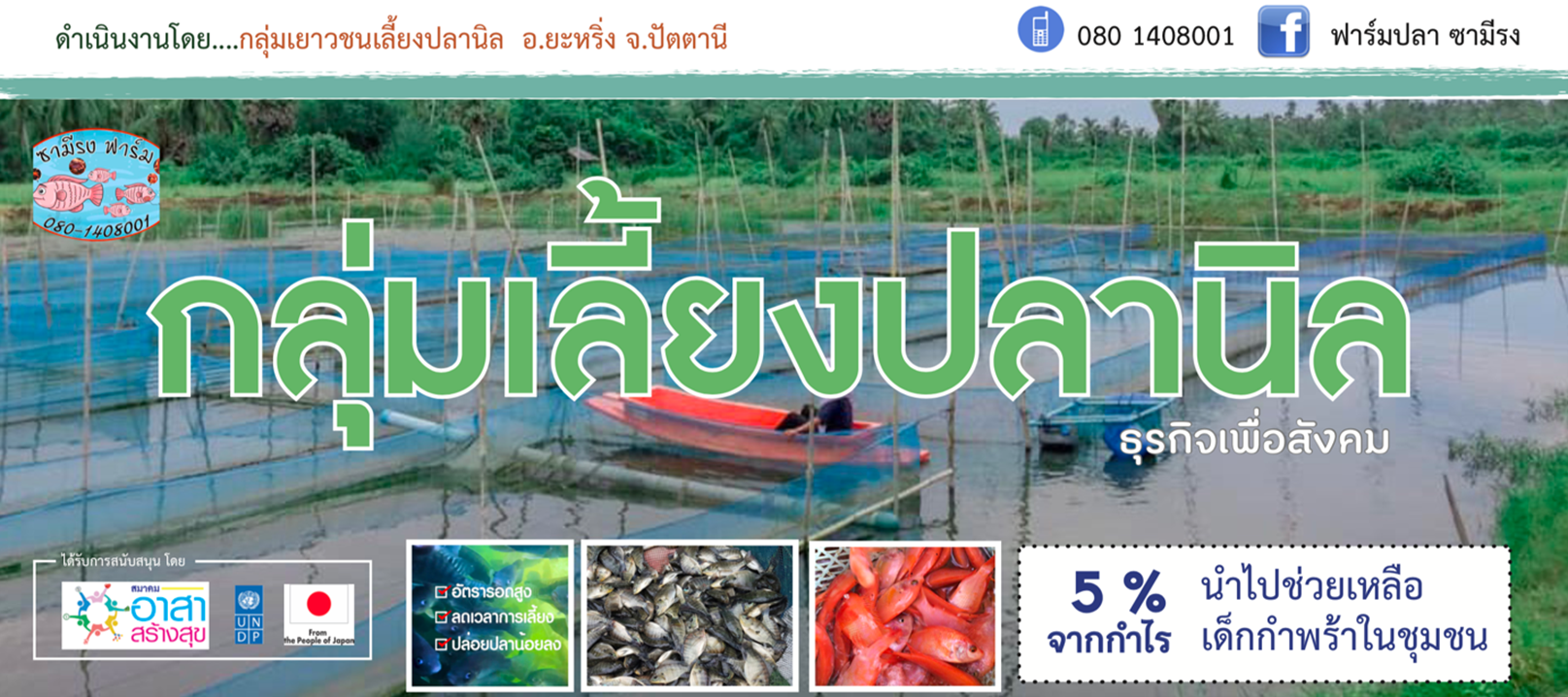Yaring District, Pattani Province is a district with an abundance of natural resources, with one of the richest mangrove forests in Thailand, turning farming of tilapia, sea bass and black tiger prawn into major sources of income to support people’s local livelihoods. However, tensions in the Southern Border Provinces led many families to move out to work in neighboring provinces. As a result, many fishponds were left abandoned.
The Tilapia Fish Farming Youth Group was formed with the support of a grant from the United Nations Development Programme (UNDP) in Thailand to take advantage of those abandoned fishponds and to raise awareness on the issues facing the community, which is home to many illiterate orphans and youths. Samirong and Arbi Ding Yuso, the senior group leaders approached them to set up a youth group to work with tilapia fish farms to generate income. They cleared the old floating baskets and started to refurbish them. Participants include youth, unemployed and those severely affected by the COVID-19 pandemic in the community.
“Once we received the seed funding for the project, we bought 10,000 fingerlings (baby tilapia). We cleared two fishponds and assigned all the youth to look after them. They are taught how to feed the fish and make a daily record. They enjoy looking after the fish and feel proud to have their own fishponds.” Rong-Samirong Ngoa, the group’s head said, reflecting on the pleasure it gives him to be an owner of the Samirong fish farm.
Once the fingerlings had been fed for two months, the first shoal of baby tilapia was sold, producing a net profit of 5,000 THB (approximately USD160). This profit was added to the farm’s existing savings and used to expand the farm with more floating fish baskets. Meanwhile, two new members who were previously unemployed were also recruited to work at the farm to increase their income. The supplementary income is used to support their families, especially in the case of “Abdulah Mahseng” or “Loh”. Rong stated, “He is very diligent and good at farm work. He has very good discipline since he has been earning and supporting himself from childhood when his parents separated and then discarded him. In general, his daily earnings have been uncertain, and of course, sometimes he has not earned anything. But now he is happy to have a job with more security and weekly earnings at the fish farm, and in the future, he would like to be able to gain a more secure monthly wage.”
This project illustrates the benefits of helping a group of ‘receivers’ to transform them into a group of ‘givers’. By earning extra income, they not only improve their own lives but support the family and contribute to the community. In addition to helping the youth and unemployed, the group also dedicates 5 per cent of its net profit to subsidize the Community Fund for Orphans. Some of the activities are posted and updated through Samirong fish farm
The youth group operating the tilapia fish floating baskets and farms is a project organized to incubate new social entrepreneurs, helping to transform them from being a group of ‘receivers’ into a group of givers using a more sustainable approach. The project aims to undertake capacity-building for younger workers in Thailand’s Southern Border Provinces and turn them into good social entrepreneurs, while also establishing a mechanism to help vulnerable populations in the areas through the social enterprise business model exercised and manifested under “The Southern Volunteers Association”. This is one of the projects under the “Strengthening socio-economic recovery, human security and resilience in Thailand in the context of the COVID-19" project ensuring to leave no one behind and safeguard the progress made towards the SDGs”, which is financially supported by the Japanese Government and implemented by UNDP in Thailand.
Story in Thai version read here.
###
Written by Southern Volunteers Association
###

 Locations
Locations







